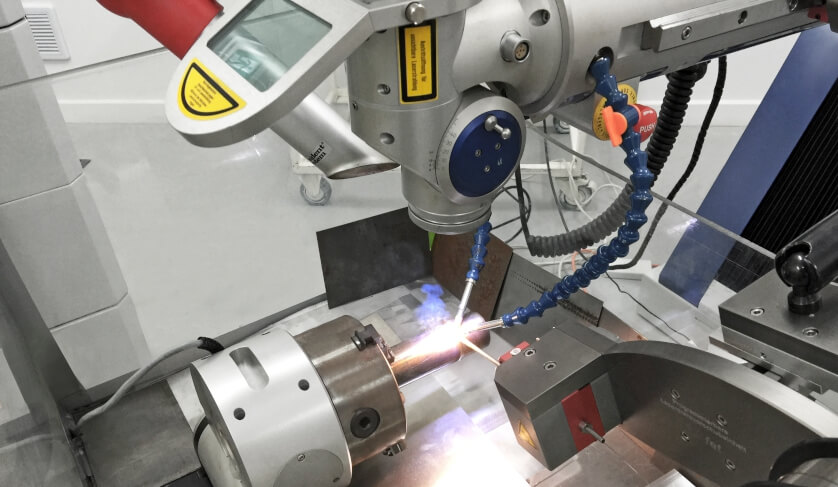RUAG Australia has partnered with researchers at the Royal Melbourne Institute of Technology (RMIT) and other universities to support the development of advanced manufacturing technologies to lower the cost of aircraft repairs.
The collaborative project focuses on using Laser metal deposition (LMD) technology to manufacture spare parts from steel and titanium, the team includes experts from the (IMCRC) and RMIT.
LMD is an additive manufacturing process akin to 3D production technology. Metal powder is fed into a laser beam, which is scanned across a surface to deposit the powder material in a precise, web-like formation.
Research team lead Professor Milan Brandt from RMIT said, "LMD is basically a very high-tech welding process where we make or rebuild metal parts layer by layer."
The bond created by LMD is exceptionally strong making the process a viable method for both manufacturing spare parts and repairing existing parts, where the repaired part is just as strong as, or in some cases even stronger than, the original.
The research team sees the technology being applied to existing military aircraft platforms as well as newer systems, such as the F-35 fleet. Considering the estimated total cost of replacing damaged aircraft parts for the Australian Air Force alone is currently at more than $230 million a year, the move to locally, additively manufactured components would have a significant impact.
The team is evaluating expectations that LMD technology will effect real cost savings in the areas of maintenance and spare parts purchasing, scrap metal management, and warehousing and shipping costs.
Neil Matthews, senior manager of advanced technology and engineering solutions, RUAG Australia, said, "Strategically speaking, a shift to LMD technology means less downtime for repairs and a dramatic increase in the availability and readiness of aircraft.
"Instead of waiting for spare parts to arrive from a warehouse, an effective solution will now be available locally."
David Chuter, CEO and managing director, IMCRC, reinforced the opportunities presented by LMD technologies, saying, "This technology could be applied in any industry where metal degradation or remanufacture of parts is an issue. The current project focuses on military aircraft and it is potentially transferable to the civil aircraft, marine, rail, mining, and oil and gas industries."
RUAG Australia is a major industry research centre for the development and application of powder deposition technologies focusing on both SPD, sometimes referred to as cold spray, and laser assisted deposition, for defence applications.
The IMCRC works in collaboration with companies, research organisations, industry associations and government to:
- Co-fund, on a dollar-for-dollar basis, broad, multidisciplinary and industry-led research projects that deliver commercial outcomes; and
- Advance the wider cause of manufacturing transformation through industry education and public advocacy.
IMCRC focuses on supporting the development of the fourth industrial revolution. This offers vast opportunities for Australian companies to create new products and services, expand into new supply chains and markets at home and around the world, and attract and develop a new generation of skilled employees.



